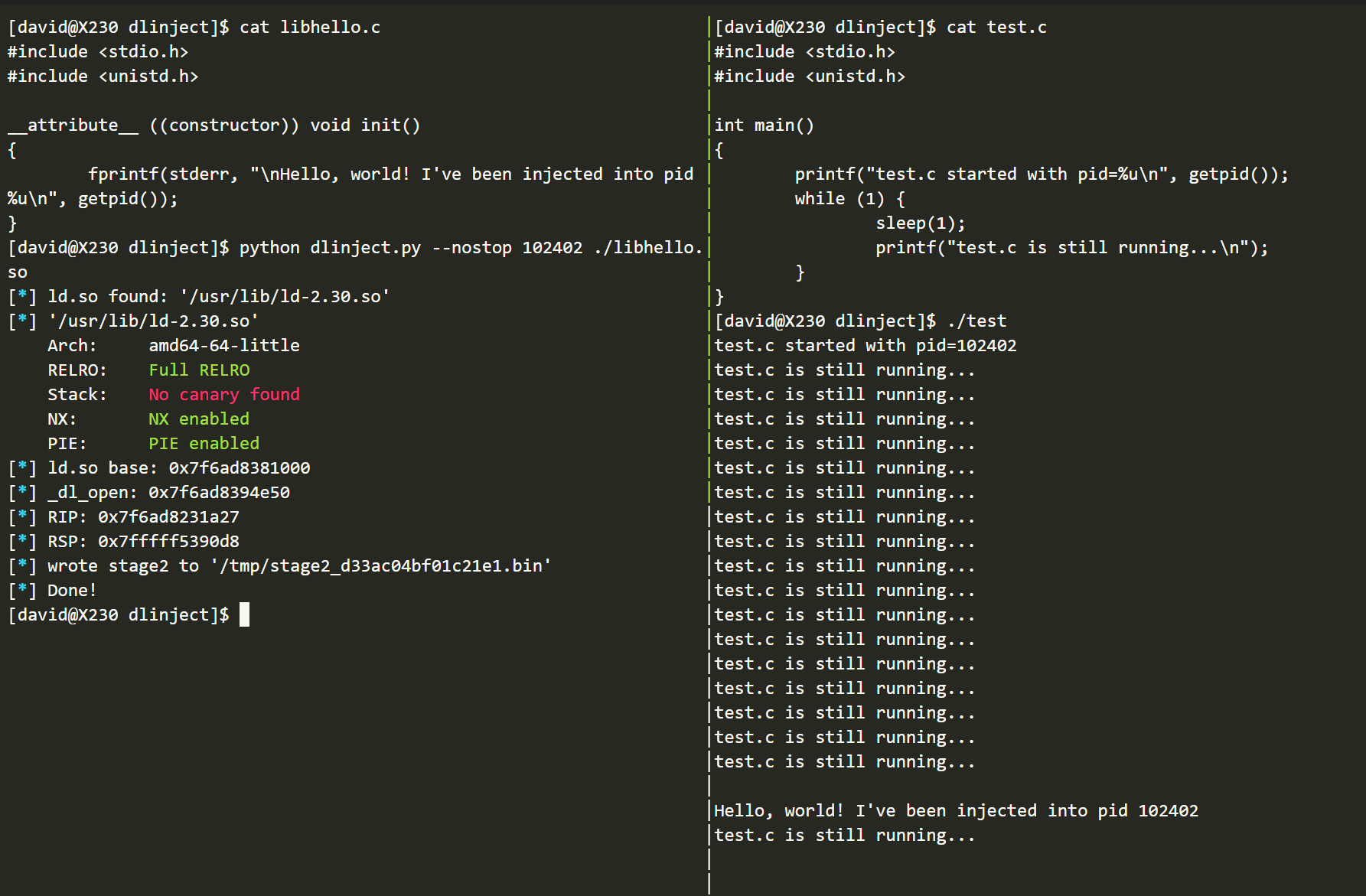
dlinject.py
Inject a shared library (i.e. arbitrary code) into a live Linux process, without ptrace. Inspired by Cexigua and linux-inject, among other things.
How it Works
- Send the stop signal to the target process. (optional)
- Locate the _dl_open() symbol.
- Retreive RIP and RSP via /proc/[pid]/syscall.
- Make a backup of part of the stack, and the code we’re about to overwrite with our shellcode, by reading from /proc/[pid]/mem.
- Generate primary and secondary shellcode buffers.
- Insert primary shellcode at RIP, by writing to /proc/[pid]/mem.
- The primary shellcode:
- Pushes common registers to the stack.
- Loads the secondary shellcode via mmap().
- Jumps to the secondary shellcode.
- The secondary shellcode:
- Restores the stack and program code to their original states.
- Pivots the stack (so we don’t touch the original one at all).
- Calls _dl_open() to load the user-specified library. Any constructors will be executed on load, as usual.
- Restores register state, un-pivots the stack, and jumps back to where it was at the time of the original SIGSTOP.
Limitations:
- Sending SIGSTOP may cause unwanted side-effects, for example, if another thread is waiting on waitpid(). The –nostop option avoids this but introduces race conditions.
- I’m not entirely sure how this will interact with complex multi-threaded applications. There’s certainly potential for breakage.
- x86-64 Linux only (for now – 32-bit support could potentially be added).
- Requires root, or relaxed YAMA configuration (echo 0 | sudo tee /proc/sys/kernel/yama/ptrace_scope is useful when testing).
- If the target process is sandboxed (e.g. seccomp filters), it might not have permission to mmap() the second stage shellcode, or to dlopen() the library.
Download
git clone https://github.com/DavidBuchanan314/dlinject.git
Use
Demo
Copyright (c) 2019 David Buchana
Source: https://github.com/DavidBuchanan314/